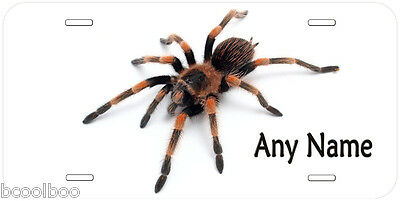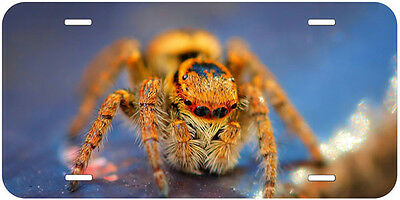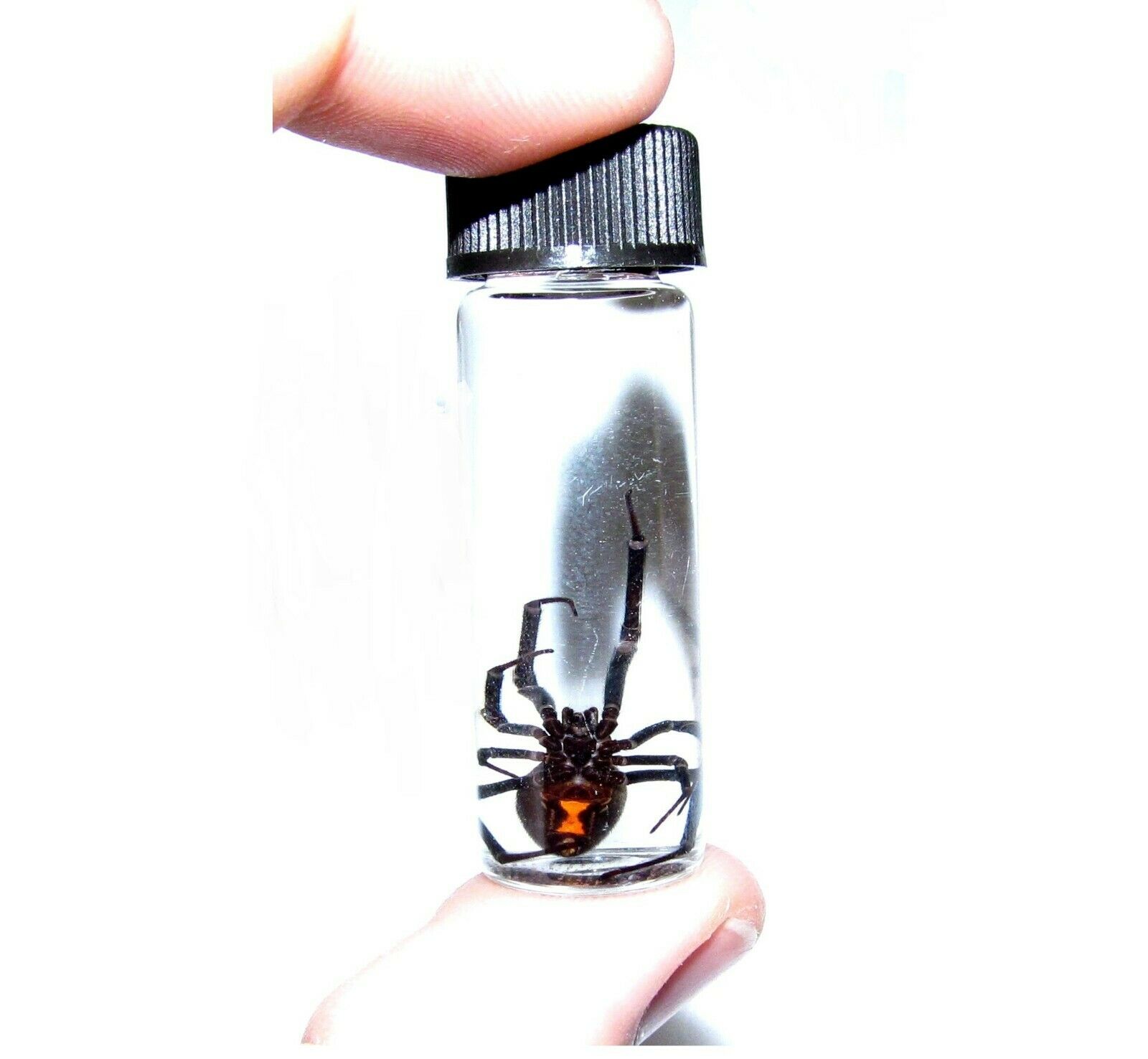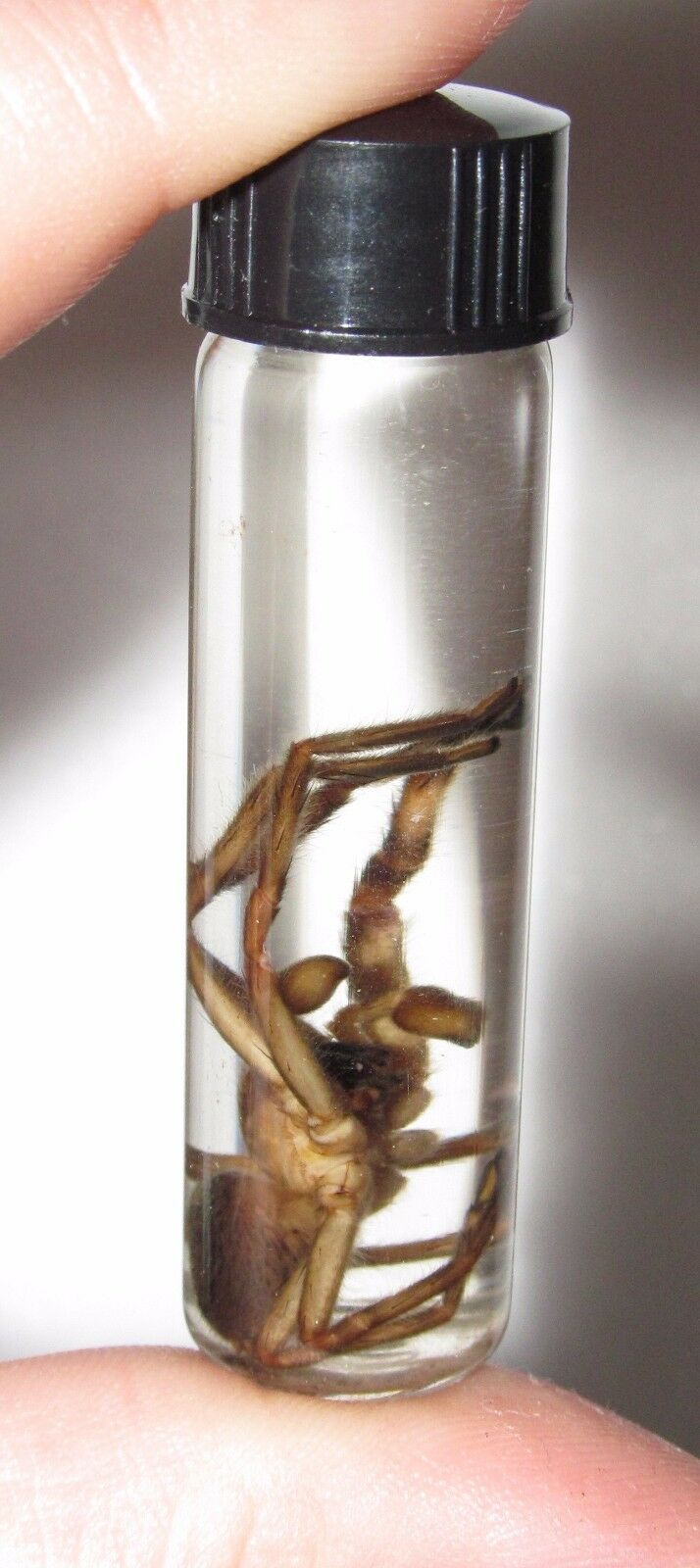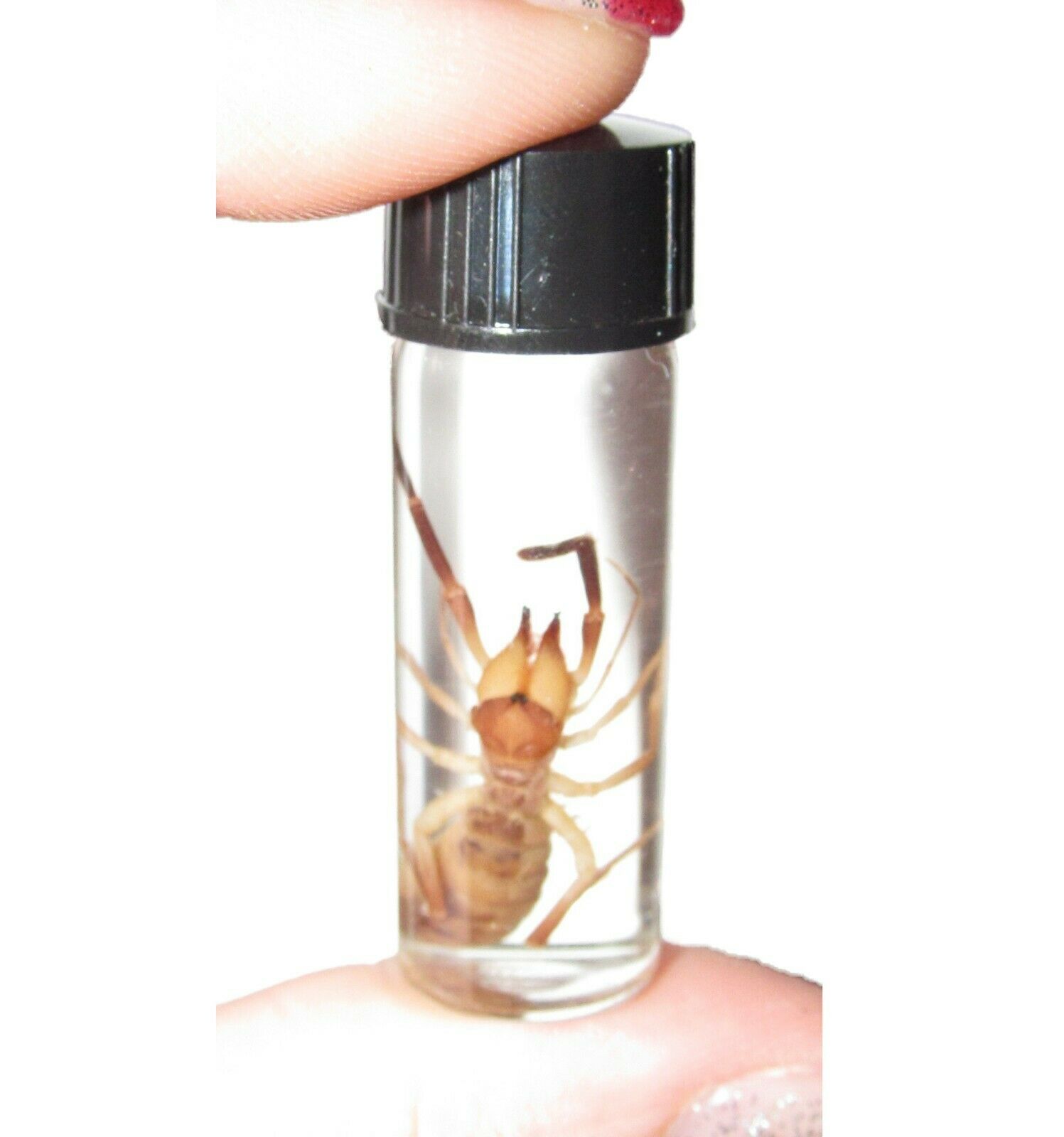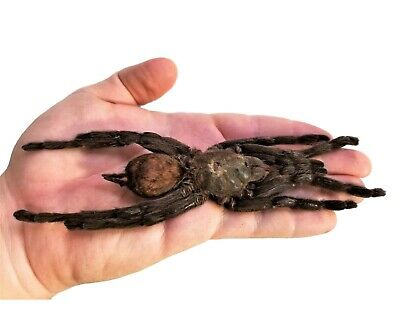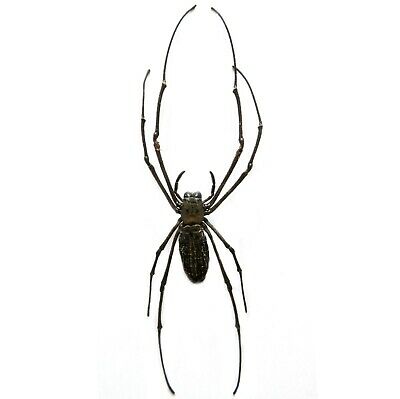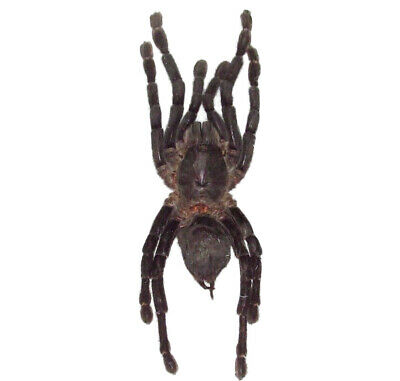-40%
Spiny Spider + Ghost Spider + Water Spider Set Clear Lucite Block Teaching Kit
$ 8.44
- Description
- Size Guide
Description
Real Spiny Spider - Gasteracantha kuhlii (left), Ghost Spider - Araneus ventricosus (centre) and Water Spider - Argyroneta aquatica (right) specimen encased in clear lucite material. The specimens are crystal clear, indestructible and transparent. Safe, authentic and completely unbreakable product put real spiders right at your fingertips!Anyone can safely explore the spiders from every angle.
It is clear enough for microscope observation.
Body size of the spiders: 1.1 cm (0.4 inch), 0.7 cm (0.3 inch) and 1.0 cm (0.4 inch)
Size of the lucite block: 7.3x4.1x1.5 cm (2.9x1.6x0.6 inch).
Allaboutlearning
Your best online business partner
Spiny Spider + Ghost Spider + Water Spider Set Clear Lucite Block Teaching Kit
Real
Spiny Spider -
Gasteracantha kuhlii
(left),
Ghost Spider -
Araneus ventricosus
(centre)
and
Water Spider
-
Argyroneta aquatica
(right)
specimen encased in clear lucite material. The specimens are crystal clear, indestructible and transparent. Safe, authentic and completely unbreakable product put real spiders right at your fingertips!
Anyone can safely explore the spiders from every angle.
It is clear enough for microscope observation.
Body s
ize of the spiders: 1.1 cm (0.4 inch), 0.7 cm (0.3 inch) and 1.0 cm (0.4 inch)
Size of the lucite block: 7.3x4.1x1.5 cm (2.9x1.6x0.6 inch).
Each one comes with a cardboard box for easy storage.
Weight of the block is 50 g and 70 g with packing box.
This is a handmade real animal specimen craft. Each one will be a bit different (specimen size, color and posture) even in the same production batch.
The pictures in the listing are just for reference as we are selling multiple pieces with same pictures.
It is an ideal learning aid for students and kids and also a very good collectible item for every body.
***
Spiny Spider -
Gasteracantha kuhlii
Order: Araneae Suborder: Araneomorphae Infraorder: Araneomorphi Series: Entelegynae Superfamily: Araneoidea Family: Araneidae Subfamily: Gasteracanthinae Tribe: Gasteracanthini
Genus:
Gasteracantha
Habitat:
Gardens, wasteland, secondary forests.
Female:
7-10 mm.
Male:
4-6 mm.
Distribution:
China, Taiwan, Singapore, Indonesia, Thailand, the Philippines, Myanmar, Cambodia, Vietnam, India, Hong Kong, Japan.
The spiny orb-weavers are a type of spider. They are also commonly called Spiny-backed orb-weavers, due to the prominent spines on their abdomen.
Ghost Spider -
Araneus ventricosus
Female body length of up to 20 ~ 30 mm. Multi-stripe and color variations, usually black or dark brown, dust-color carapace, lateral fossa, radiation significantly ditch. Dun chest plate, the central vertical with a light. Pereiopod dust-color, with black round-shaped pattern. Oval abdomen, shoulders in front of each of a blunt cone protruding. Dust-color on the back, we can see clearly the central dark brown leaf-spot. Ventral wire in front of the warts have a pair of round yellow spots, and some of the former silk warts and another outside a pair of round yellow spots. Epigynum of long-tongued-shaped pituitary, the most wide-base gradually narrowed down, the blunt end of the round.
Male smaller size, length 15 ~ 20 mm. Light-colored, with zebra and female. Article II pereiopod medial tibia at the end of a Tuci, bend communis section.
Widespread at lower elevations around the mountains, fields and parks. In the evening, at the edge of the woods or under the eaves predator networks, network for the rotary. Often undermine the networks during the day, hiding in the branches next to the net or leaves the building in the pit.
Distribution
: China, Korea, Japan, Russia, Taiwan
Water Spider -
Argyroneta aquatica
Order: Araneae Infraorder: Araneomorphae Family: Cybaeidae Genus:
Argyroneta
Water spider
(
Argyroneta aquatica
), also known as diving bell spider, species of spider that is known for its underwater silk web, which resembles a kind of flexible diving bell. The water spider is the only species of spider known to spend its entire life underwater. It has been placed in the family Argyronetidae; however, studies of fossil spiders suggest that it may be more closely related to members of family Cybaeidae.
Water spiders are found in ponds, slow-moving streams, and other shallow bodies of fresh water, particularly where aquatic vegetation is abundant. They are distributed geographically across the northern and central regions of Europe and Siberia. Adult water spiders measure between 8 and 15 mm (0.3 and 0.6 inch) in length and typically are gray to dark brown in colour. Their legs and abdomens are covered with fine hairs, which trap air bubbles in the water and give the spiders a shimmering, silvery appearance.
Once a water spider has captured tiny bubbles of air in the hairs on its body at the water’s surface, it transports them to its silk web, which is anchored to underwater plants or other objects, and ejects them into the interior, thereby inflating the underwater house with air. Research has shown that the inflated web serves as a sort of gill, extracting dissolved oxygen from the water when oxygen concentrations inside the web become sufficiently low to draw oxygen in from the water. Slowly, however, the inflated web collapses, and the spider must travel to the water’s surface for bubble renewal, which it does about once each day.
Most of the life cycle of the water spider, including courtship and breeding, prey capture and feeding, and the development of eggs and embryos, occurs below the water’s surface. Many of these activities take place within the spider’s diving bell.
Water spiders, which tend to be more active at night than during the day, are carnivorous and prey on aquatic invertebrates, such as water mites, water boatmen, and phantom midge larvae. Males generally are more aggressive hunters than females.
Male water spiders often construct their webs close to those of females and tunnel into the females’ webs to mate. A female may lay between 30 and 70 eggs, which are secured within a cocoon suspended from the upper region of the female’s web. Eggs hatch within several weeks, and the spiderlings disperse into the water. Young water spiders often make use of empty snail shells and similar habitats, which they fill with air, before constructing their own webs.
Item Specifics
Material
Resin
Type
Collector Plate
Country/Region of Manufacture
China
Modified Item
No
Handmade
Yes
Animal Class
Spider
Payment
Payment: By Paypal
Shipping cost
Free shipping cost.
We send the goods to USA, Canada, UK, Australia, New Zealand, EU countries and some other European and Asian countries by E-express, a kind of fast postal service by Hong Kong Post. It usually takes about 6 to 10 working days for delivery.
We send the goods to other countries by registered airmail and will take about 8 to 14 working days for delivery.
Return policy
Returns: We accept returns with any reason in 30 days. Buyer will bear the return shipping cost.
Messages
We will answer messages in 24 hours during working days.
[ Policy
: This is the contents of your policies. You can add a banner for this policy as header and add text descriptions here. The text descriptions can be different Font Size, Font Color, Style and even graphics and icons are also accepted. ]
Allaboutlearning
Your best online business partner
Spiny Spider + Ghost Spider + Water Spider Set Clear Lucite Block Teaching Kit
Real
Spiny Spider -
Gasteracantha kuhlii
(left),
Ghost Spider -
Araneus ventricosus
(centre)
and
Water Spider
-
Argyroneta aquatica
(right)
specimen encased in clear lucite material. The specimens are crystal clear, indestructible and transparent. Safe, authentic and completely unbreakable product put real spiders right at your fingertips!
Anyone can safely explore the spiders from every angle.
It is clear enough for microscope observation.
Body s
ize of the spiders: 1.1 cm (0.4 inch), 0.7 cm (0.3 inch) and 1.0 cm (0.4 inch)
Size of the lucite block: 7.3x4.1x1.5 cm (2.9x1.6x0.6 inch).
Each one comes with a cardboard box for easy storage.
Weight of the block is 50 g and 70 g with packing box.
This is a handmade real animal specimen craft. Each one will be a bit different (specimen size, color and posture) even in the same production batch.
The pictures in the listing are just for reference as we are selling multiple pieces with same pictures.
It is an ideal learning aid for students and kids and also a very good collectible item for every body.
***
Spiny Spider -
Gasteracantha kuhlii
Order: Araneae Suborder: Araneomorphae Infraorder: Araneomorphi Series: Entelegynae Superfamily: Araneoidea Family: Araneidae Subfamily: Gasteracanthinae Tribe: Gasteracanthini
Genus:
Gasteracantha
Habitat:
Gardens, wasteland, secondary forests.
Female:
7-10 mm.
Male:
4-6 mm.
Distribution:
China, Taiwan, Singapore, Indonesia, Thailand, the Philippines, Myanmar, Cambodia, Vietnam, India, Hong Kong, Japan.
The spiny orb-weavers are a type of spider. They are also commonly called Spiny-backed orb-weavers, due to the prominent spines on their abdomen.
Ghost Spider -
Araneus ventricosus
Female body length of up to 20 ~ 30 mm. Multi-stripe and color variations, usually black or dark brown, dust-color carapace, lateral fossa, radiation significantly ditch. Dun chest plate, the central vertical with a light. Pereiopod dust-color, with black round-shaped pattern. Oval abdomen, shoulders in front of each of a blunt cone protruding. Dust-color on the back, we can see clearly the central dark brown leaf-spot. Ventral wire in front of the warts have a pair of round yellow spots, and some of the former silk warts and another outside a pair of round yellow spots. Epigynum of long-tongued-shaped pituitary, the most wide-base gradually narrowed down, the blunt end of the round.
Male smaller size, length 15 ~ 20 mm. Light-colored, with zebra and female. Article II pereiopod medial tibia at the end of a Tuci, bend communis section.
Widespread at lower elevations around the mountains, fields and parks. In the evening, at the edge of the woods or under the eaves predator networks, network for the rotary. Often undermine the networks during the day, hiding in the branches next to the net or leaves the building in the pit.
Distribution
: China, Korea, Japan, Russia, Taiwan
Water Spider -
Argyroneta aquatica
Order: Araneae Infraorder: Araneomorphae Family: Cybaeidae Genus:
Argyroneta
Water spider
(
Argyroneta aquatica
), also known as diving bell spider, species of spider that is known for its underwater silk web, which resembles a kind of flexible diving bell. The water spider is the only species of spider known to spend its entire life underwater. It has been placed in the family Argyronetidae; however, studies of fossil spiders suggest that it may be more closely related to members of family Cybaeidae.
Water spiders are found in ponds, slow-moving streams, and other shallow bodies of fresh water, particularly where aquatic vegetation is abundant. They are distributed geographically across the northern and central regions of Europe and Siberia. Adult water spiders measure between 8 and 15 mm (0.3 and 0.6 inch) in length and typically are gray to dark brown in colour. Their legs and abdomens are covered with fine hairs, which trap air bubbles in the water and give the spiders a shimmering, silvery appearance.
Once a water spider has captured tiny bubbles of air in the hairs on its body at the water’s surface, it transports them to its silk web, which is anchored to underwater plants or other objects, and ejects them into the interior, thereby inflating the underwater house with air. Research has shown that the inflated web serves as a sort of gill, extracting dissolved oxygen from the water when oxygen concentrations inside the web become sufficiently low to draw oxygen in from the water. Slowly, however, the inflated web collapses, and the spider must travel to the water’s surface for bubble renewal, which it does about once each day.
Most of the life cycle of the water spider, including courtship and breeding, prey capture and feeding, and the development of eggs and embryos, occurs below the water’s surface. Many of these activities take place within the spider’s diving bell.
Water spiders, which tend to be more active at night than during the day, are carnivorous and prey on aquatic invertebrates, such as water mites, water boatmen, and phantom midge larvae. Males generally are more aggressive hunters than females.
Male water spiders often construct their webs close to those of females and tunnel into the females’ webs to mate. A female may lay between 30 and 70 eggs, which are secured within a cocoon suspended from the upper region of the female’s web. Eggs hatch within several weeks, and the spiderlings disperse into the water. Young water spiders often make use of empty snail shells and similar habitats, which they fill with air, before constructing their own webs.
Item Specifics
Material :
Resin
Type :
Collector Plate
Country/Region of Manufacture :
China
Modified Item :
No
Handmade :
Yes
Animal Class :
Spider
Payment
Payment: By Paypal
Shipping cost
Free shipping cost.
We send the goods to USA, Canada, UK, Australia, New Zealand, EU countries and some other European and Asian countries by E-express, a kind of fast postal service by Hong Kong Post. It usually takes about 6 to 10 working days for delivery.
We send the goods to other countries by registered airmail and will take about 8 to 14 working days for delivery.
Return policy
Returns: We accept returns with any reason in 30 days. Buyer will bear the return shipping cost.
Messages
We will answer messages in 24 hours during working days.
[ Policy
: This is the contents of your policies. You can add a banner for this policy as header and add text descriptions here. The text descriptions can be different Font Size, Font Color, Style and even graphics and icons are also accepted. ]
Copyright of XXXXX. All right reserved.
Shop Category
Store Home
Minerals, Stones & Gemstones
◈ Display Specimens Set
◈ Stone Mix & Bulk Lots
◈ Single piece
Animal and plant specimens
◈ Collection Sets
◈ Life Cycle Specimen
◈ Animal Skeleton
◈ Laminated Specimen
◈ Insect single specimen
◈ Animal single specimen
◈ Plant Single Specimen
Animal & plant ornament
◈ Key ring
◈ Bracelet
◈ Necklace
◈ Hanger
◈ Cabochon
◈ Magnet
◈ Dome paperweight
Meteorite & Tektite
◈ Black Tektite - Single piece
◈ Black Tektite - Loose Lot
◈ Black Tektite - Crafts
Star Ruby & Sapphire
▷ Star Ruby
♢ Opaque Star Ruby
◈ Star Sapphire
Turquoise items
◈ Natural - cabochon
Other
Hot Item
Insect Cabochon Golden Scorpion Oval 18x25 mm on black bottom 2 pieces Lot
USD 12.00
Insect Cabochon Golden Scorpion Oval 18x25 mm on white bottom 2 pieces Lot
USD 12.00
Murder Hornet - 7 Seven Bee Wasp & Hornet Collection Set Education Specimen
USD 35.00
Insect Cabochon Black Scorpion Oval 18x25 mm on White bottom 2 pieces Lot
USD 12.00
Murder Hornet Vespa Mandarinia Education Insect Specimen Clear Paperweight
USD 16.00
Picture
New List Item
Turquoise Stone Rect. 20x15 mm Flat Cabochon 138 Carat 9 pieces 27.6 gram Lot A
USD 33.99
Turquoise Stone Rect. 14x10 mm Flat Cabochon 146.5 Carat 25 pieces 29.3 gram
USD 35.99
6 Plant Seed + Root Set in 6 Amber Clear Square Resin Slide Block Learning Tool
USD 24.99
Turquoise Stone Rect. 25x18 mm Flat Cabochon 191.5 Carat 9 pieces 38.3 gram
USD 43.99
Turquoise Stone Rect. 22x16 mm Flat Cabochon 160 Carat 9 pieces 32 gram
USD 37.99
Custom Item











